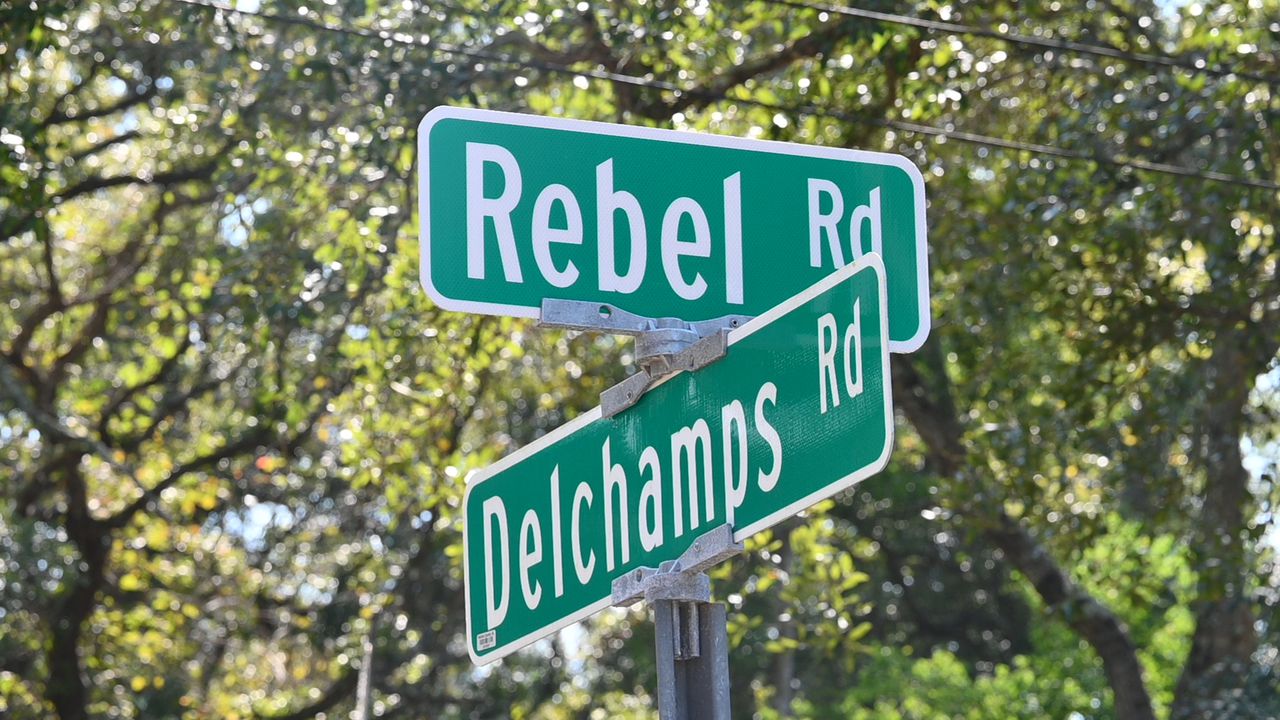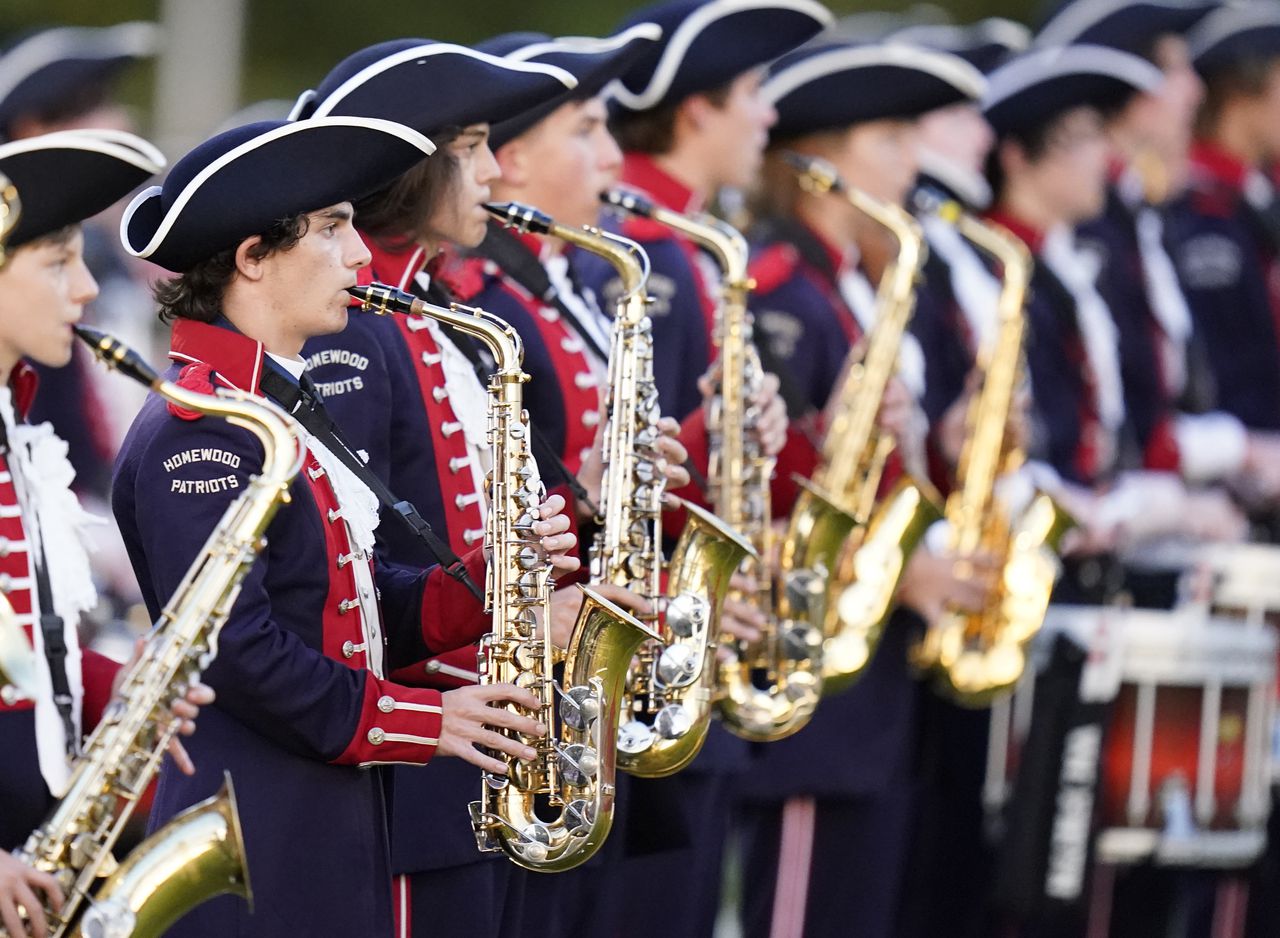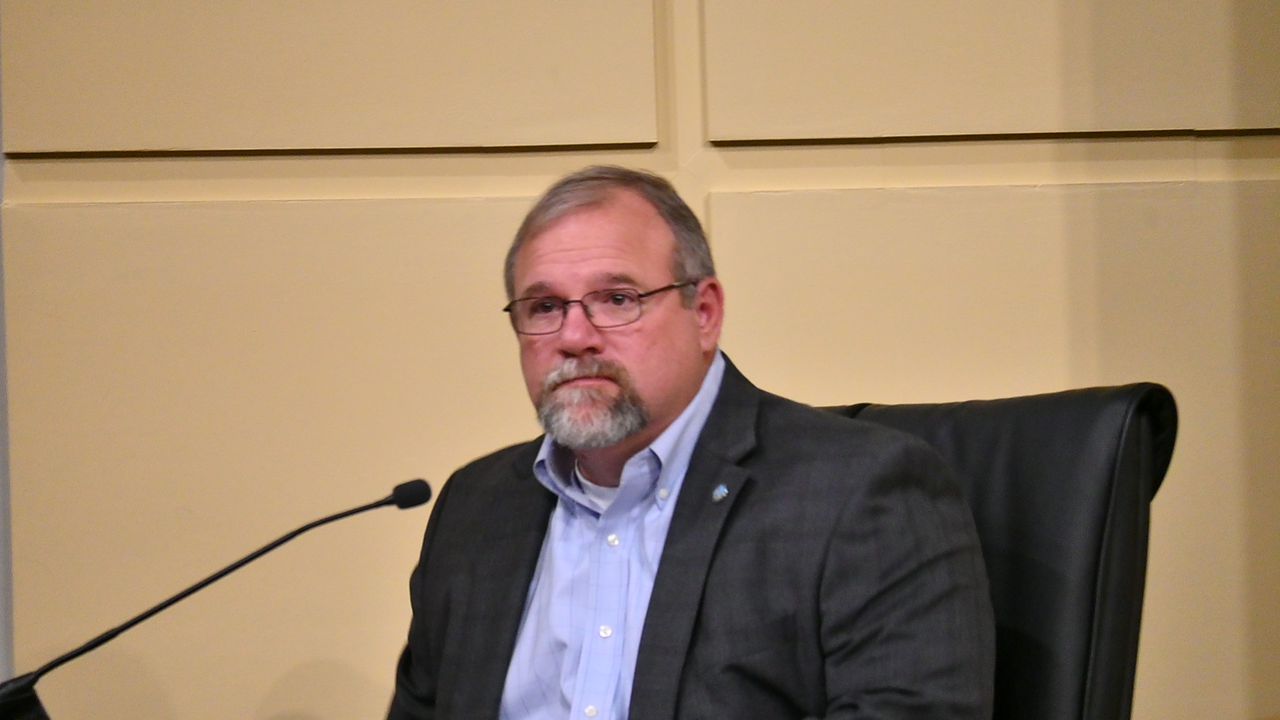Why the federal government removed the name, âRebel,â from an Alabama cul-de-sac
Rebel Court has no houses on it and amounts to nothing more than an unmarked cul-de-sac in the middle of a rural field about 20 miles south of Mobile.
But the days of having “Rebel” in its name are numbered. And it’s at the federal government’s suggestion to have the Rebel name scrubbed from the rural Alabama street.
Related:
The Bureau of Land Management (BLM), a division of the U.S. Department of Interior, recently requested and received approval on Monday for the name change from the Mobile County Commission.
The approval comes about three months after the agency purchased 5.1 acres surrounding the cul-de-sac in June. The cul-de-sac’s new name is “Fowl River Court,” named after the nearby river.
Part of the reason for the name change, according to a BLM spokesperson, was the “historic connotations” of linking the word rebel with the Confederacy.
“The name change primarily was initiated to accurately reflect the area’s natural landscape characteristics and help the public identify the recreational opportunities of the newly acquired public lands in Mobile County,” Kristen Peters, spokesperson with the BLM, told AL.com. “We also recognize the historical connotations of the name. Naming the road after the area’s foremost geographic feature, Fowl River, will ensure these public lands are a welcoming place for all to enjoy the outdoors.”
Surprise request
Mobile County Commissioner Randall Dueitt at the commission’s meeting on Monday, April 10, 2023, at Government Plaza in Mobile, Ala. (John Sharp/[email protected]).
County officials have said since Monday that they had no idea about the federal agency’s concerns about the Rebel name. The name change drew no controversy, or any conversation during Monday’s commission meeting.
County officials said that BLM’s request to them simply stated that the rationale for the name change was to be conducive with the cul-de-sac’s proximity to Fowl River.
“It’s odd that they never said anything like that to us,” said Commissioner Randall Dueitt, who represents South Mobile County on the three-member commission.
He added, “Rebel Court was a private road. Those are not county maintained. It’s their private property. They wanted to change the name and I don’t have an objection to it. But they never mentioned anything about the historical significance of the road name to us.”

Rebel Road in South Mobile County, Ala. (John Sharp/[email protected]).
Dueitt noted that BLM’s name-changing efforts do not extend beyond Rebel Court, where the adjacent Rebel Road runs for approximately two miles. The rural residential road is one of the main two-lane roads leading visitors to Bellingrath Gardens and Home, a popular tourist attraction on 65 acres along Fowl River.
“Our street naming application only pertains to the cul-de-sac within the acquired property in Mobile County,” Peters said.
But there are questions on whether the name change will be allowed, or if it can be challenged under the Alabama Memorial Preservation Act of 2017. That act prohibits, among other things, the renaming of a “memorial street” that has been situated for 40 or more years. County officials were uncertain as to how long the cul-de-sac had been named Rebel Court.
Dueitt said he was also uncertain to the cul-de-sac’s history, though he said it was initially built for future residential development. Dueitt said the previous owners – the Rainwaters family – might have had the cul-de-sac named after the adjacent Rebel Road.
It’s also unclear if the state could force a name change to a cul-de-sac surrounded by federal property.
The Alabama Attorney General’s Office — which has investigated violations of the 2017 law and has assessed $25,000 fines against local governments for violating it — declined to comment.
“(BLM) made the request and we granted it,” Dueitt said. “If the Attorney General has an issue with it, we’ll change it back. If we violated the statute … I’d go back and change the name of the road and reverse the decision. I wouldn’t want to pay $25,000.”
Violations
The most high-profile violation of the law in South Alabama occurred in 2020, when Mobile Mayor Sandy Stimpson had the city remove a statue of Confederate soldier Raphael Semmes from downtown Mobile days after rioting was occurring nationwide in the wake of the killing of George Floyd in Minneapolis. The city was fined $25,000 by Attorney General Steve Marshall’s Office, which it paid before relocating the statue inside the History Museum of Mobile.
Street name changes have produced fewer issues, but fines have occurred when they take place. In Montgomery, an anonymous donor paid a $25,000 fine for the city after officials renamed Jefferson Davis Avenue to Fred Gray Avenue. Gray, who grew up on the avenue, was a prominent attorney during the civil rights movement.
Forty-eight Confederate symbols were removed, renamed or relocated in 2022 throughout the U.S., including two in Alabama, according to a report from the Southern Poverty Law Center. The two in Alabama involved renaming schools after Jefferson Davis and Robert E. Lee in Montgomery.
Dueitt said he, personally, does not believe the word “Rebel” in Rebel Court or Rebel Road were “historically significant to anything.”
Rebel is a word that was applied to the Confederates by U.S. officials and pro-Union writers during the Civil War.
“What is a rebel?” he said. “Is it a term maybe coined to Confederate soldiers? Maybe. But honestly, I never put the two together (regarding the street names).”
Generic terms

The Vestavia band plays prior to the game at Waldrop Stadium in Homewood, Ala., Friday, Aug. 27, 2021. (Marvin Gentry | [email protected])
The Rebel Court name change might be the first time a generic name linked to the Confederacy has become part of the debate over the Alabama law protecting Confederate imagery.
Cases have emerged elsewhere:
- Vestavia Hills City Schools in 2020 stated its high school mascot would remain the Rebels despite a group’s renewed calls for the system to drop the name for its association with the Civil War and the Confederacy. The school system posted a letter to its website explaining why Rebel will remain even after the system faced a contentious 2015-2016 that included angry meetings, community uproar and at least one lawsuit over the matter.
- In Kyle, Texas, city officials decided to rename a 2-mile “Rebel Drive” in 2020. The replacement name – Fajita Drive – drew plenty of controversy even though it was named in honor of a city resident who was credited with popularizing the cooking style in 1969. In 2021, the city opted to rename it Veterans Drive.
- In Atlanta, Confederate Avenue and East Confederate Avenue were changed to United Avenue in 2019. Confederate Court was changed to Trestletree Court – named after a large apartment complex surrounding the street.
- In Fairfax, Virginia, city officials voted in July to rename 14 streets with names tied to the Confederacy. Among them: Confederate Lane, Reb Street, Plantation Parkway, and Ranger Road.
School mascots linked to rebels have also stirred controversy. An Indiana high school continues with its Rebels nickname despite efforts by alumnus to “Retire the Rebel.” School officials claim the Rebel nickname is more linked to iconic 1955 James Dean movie “Rebel Without a Cause,” than with the Confederacy, according to a report from the SPLC.
The most high-profile example occurred almost 20 years ago at the University of Mississippi, when the Colonel Reb mascot was retired.
